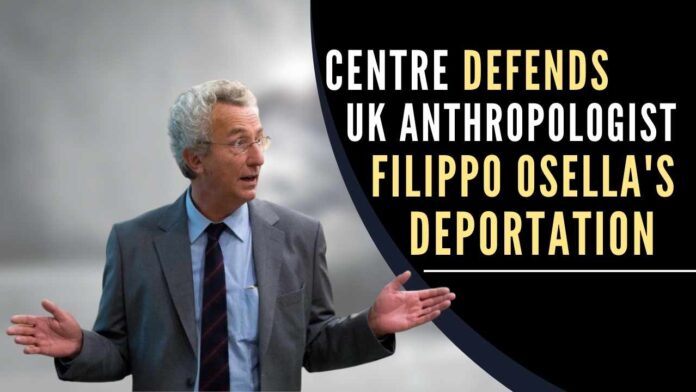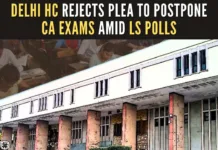
UK anthropologist Filippo Osella was deported on arrival in Thiruvananthapuram in March this year
The Government of India on Wednesday opposed a petition by anthropologist Filippo Osella from the United Kingdom against the denial of entry into India in March and his subsequent deportation, saying the academician was in the “highest category of blacklisting”. Indian government’s counsel said the authorities had sufficient material which constrained them to blacklist the petitioner and then deport him. The petitioner, an anthropologist from the UK involved in research on fishing communities in Kerala, was denied entry and deported upon arrival at the Thiruvananthapuram airport in Kerala State on March 23.
“He (petitioner) was in the highest category of blacklisting. There was a lot of material because of this he had to be deported. There is more to it than meets the eyes,” the Central government lawyer told Delhi High Court on Wednesday. He also urged the court to peruse the relevant file as it was not possible to “disclose everything on an affidavit”. Justice Yashwant Varma, however, asked the Centre to first file its written response in the matter before any privileged document is considered by the court.
“File an affidavit. It would be unfair to the petitioner that we independently peruse something which is produced in a sealed cover and they don’t get to know what it is. If that affidavit lays the foundation for us to see some documents which are privileged… Then we will consider looking into it,” said the judge, granting four weeks’ time to the Centre to file the response.
In his plea, the petitioner has said the reasons behind his “forceful” deportation from the airport and the denial of entry in spite of a valid visa are “unknown” and his representations to the authorities remain unanswered. He has claimed the conduct of the authorities was “unfair, unjust and arbitrary” as well as ultra vires the Constitution of India, international law, and fundamental human rights and dignity.
“Shockingly, when the petitioner landed in Thiruvananthapuram at 3.05 AM after a journey of about twenty hours with a layover in Dubai – he was denied entry and was forcibly deported. Reasons were disturbingly absent in this high-handed and arbitrary conduct of the Immigration authorities at Thiruvananthapuram airport. By 4:30 AM, the Professor was literally marched back and bundled into the same aircraft, in which he had arrived and was unjustly deported – much like a hardened criminal,” the petition has said.
“The Petitioner’s request for his blood pressure medications from his luggage was also not allowed creating extreme anxiety, hypertension, and panic,” added the plea which also informed the incident invited “a huge backlash in the national and international press as well as in the wide cross-section of the academic community”. The plea has been submitted the petitioner had a valid multiple-entry 12-month research visa for India and has an unblemished travel record and none of the legally valid reasons for deportation were applicable to him.
PGurus is now on Telegram. Click here to join our channel and stay updated with all the latest news and views
For all the latest updates, download PGurus App.
- Prime Minister Narendra Modi: A Gujju businessman who does not invest his precious time for a losing battle - April 13, 2024
- NIA arrests two accused Shazib and Taahaa in Bengaluru’s Rameshwaram Cafe blast case from Kolkata - April 12, 2024
- National Herald scam: Adjudicating Authority upholds Rs.752 crore assets attached by ED - April 11, 2024










